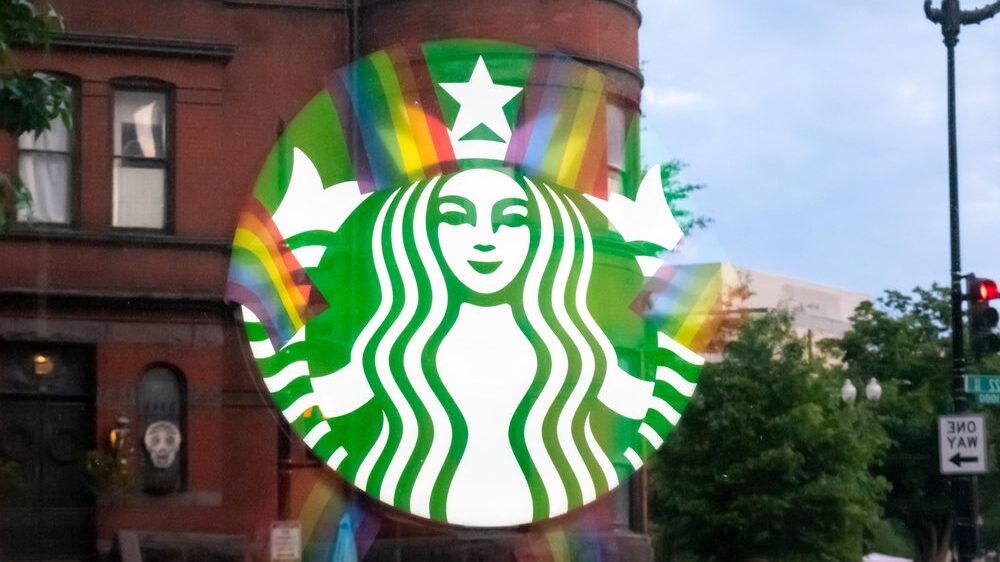
Photo: Hiram Rios / Shutterstock.com
Starbucks’ head office is issuing clearer guidelines for its in-store decorations. The move comes after allegations by an LGBT-friendly union that dozens of the coffee chain’s U.S. stores’ managers had banned or removed pride month-themed decorations.
Last Friday, June 23rd, Starbucks called the claims “false information,” as there had been “no change to any policy on this matter” and was still encouraging store managers to celebrate pride month as long as store safety guidelines were followed.
The managers in question said there were not enough working hours to mount these decorations in order to meet said safety requirements, as per company policy.
The union nonetheless announced a strike. Under the initiative ‘Strike with Pride’, over 3,000 employees from over 150 Starbucks stores voiced their willingness to walk off the job. That Friday, the first of those strikes began in Seattle, Starbucks’ home base, with more expected to follow.
In a June 26th memo, Starbucks writes that, while it had heard from its partners that they “want to be creative in how our stores are represented” as they see “visual creativity in stores as part of who we are and our culture,” it also saw the need for “clearer centralized guidelines” to provide “clarity and consistency” concerning its guidelines currently in place around visual displays and decorations.
The memo from Sara Trilling, executive vice president and president of Starbucks North America, further states that the company “will continue to provide the flexibility [which appears to run counter to its promise of more centralized rules] needed so that our stores reflect the communities they serve.”
Starbucks top executive Laxman Narasimhan stated last week that the company is “at the forefront of supporting the LGBTQIA2+ community,” and “will not waver in that commitment!”
A quick perusal of the coffee chain’s websites devoted to its non-U.S. branches (in Europe, Asia and, more recently, the Middle East) teaches that no such unwavering support to that specific community—except banal references to inclusion and diversity—is expressed.
On Monday, June 27th, Starbucks filed two complaints against Workers United with the National Labor Relations Board (NLRB), alleging that the union made misleading claims on the company’s supposedly anti-pride decoration guidelines and ‘gender-affirming’ health care benefits, which the company maintains it provides to its workers, countering claims from unionized workers they have to pay for such medical procedures out of their own pocket.
In an emailed statement to Reuters, the union said that every charge against them by Starbucks was dismissed by the NLRB, adding that any new charges will also be dismissed because “they are nothing more than a public relations stunt meant to distract from Starbucks’ own actions.”
Cognisant of the fact that Starbucks, like much of corporate America, is more concerned with public image and profit than true commitment to its workforce, the union went on to challenge Starbucks. It said that if Starbucks wants to be an ally to the ‘LGBTQIA+ community’, they will actually listen to their “queer workers” by coming to the bargaining table to negotiate in good faith.
In total, Starbucks has about 16,000 locations in the U.S., some of which it owns itself and others that are owned by franchisees.
